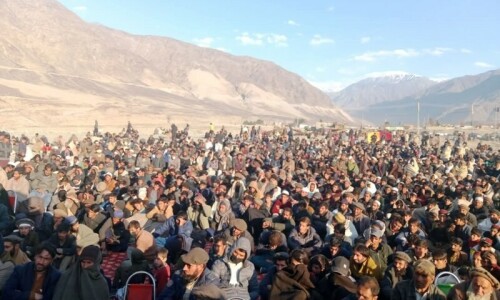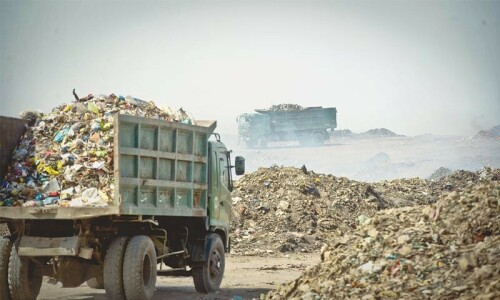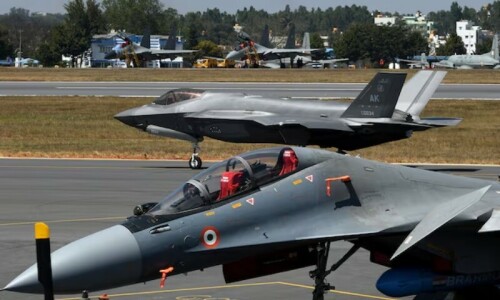ISLAMABAD: For the ninth month in a row, Pakistan’s merchandise exports dived by 16.69 per cent year-on-year to $2.18 billion in May, showed data released by the Pakistan Bureau of Statistics on Friday.
In the first 11 months (July to May) of 2022-23, the exports dipped 12.14pc to $25.36bn compared to $28.87bn in the corresponding period last year.
The export proceeds are declining mainly because of internal and external factors stoking up fears about the closure of industrial units, especially textile and clothing.
At the same time, imports also plunged by 36.76pc to $4.27bn in May compared to $6.76bn in the corresponding month last year. Imports fell 29.22pc to $51.15bn during July-May from $72.28bn over the corresponding period last year.
The government has placed curbs on luxury and non-essential goods and only encouraged imports of raw materials, semi-finished products, pharmaceutical products, food and energy products. As a result, the import bill saw a deep drop in 11 months.
Trade deficit narrows over 40pc to $25.79bn in 11MFY23
Between July and May FY23, the trade deficit decelerated by 40.59pc to $25.79bn from $43.40bn over the corresponding months of last year. In May, the trade deficit fell year-on-year by 49.49pc to $2.08bn.
The exports started posting negative growth in July, barring August when a slight increase was recorded because of the backlog of the preceding month. Export contraction is a worrisome factor, which will create problems in balancing the country’s external account.
The drop in textile and clothing, which constitutes more than 60pc of total exports, shows the government would find it difficult to achieve the export target this fiscal year.
Textile exports were declining due to the federal government’s lack of strategy and inability to prioritise effectively, said the exporters.
They further said the root causes of the export decline include working capital shortages and liquidity crunch as refunds such as sales tax, deferred sales tax, income tax, drawbacks of local taxes and levies, technology upgradation fund, and duty drawbacks are being delayed.
It was highlighted that the faster refund system is not functioning as intended, with refunds now taking 3-5 months to process instead of the promised 72 hours. Additionally, the sector is facing a substantial increase in financial and energy costs, the exporters further lamented.
Additionally, the sector is facing a substantial increase in financial and energy costs, the exporters lamented.
Moreover, it has become difficult for exporters to place orders for the import of raw materials and procure other inputs locally. The State Bank of Pakistan has created hurdles in opening letters of credit which led to a decline in exports, they remarked.
Published in Dawn, June 3rd, 2023


















































Dear visitor, the comments section is undergoing an overhaul and will return soon.